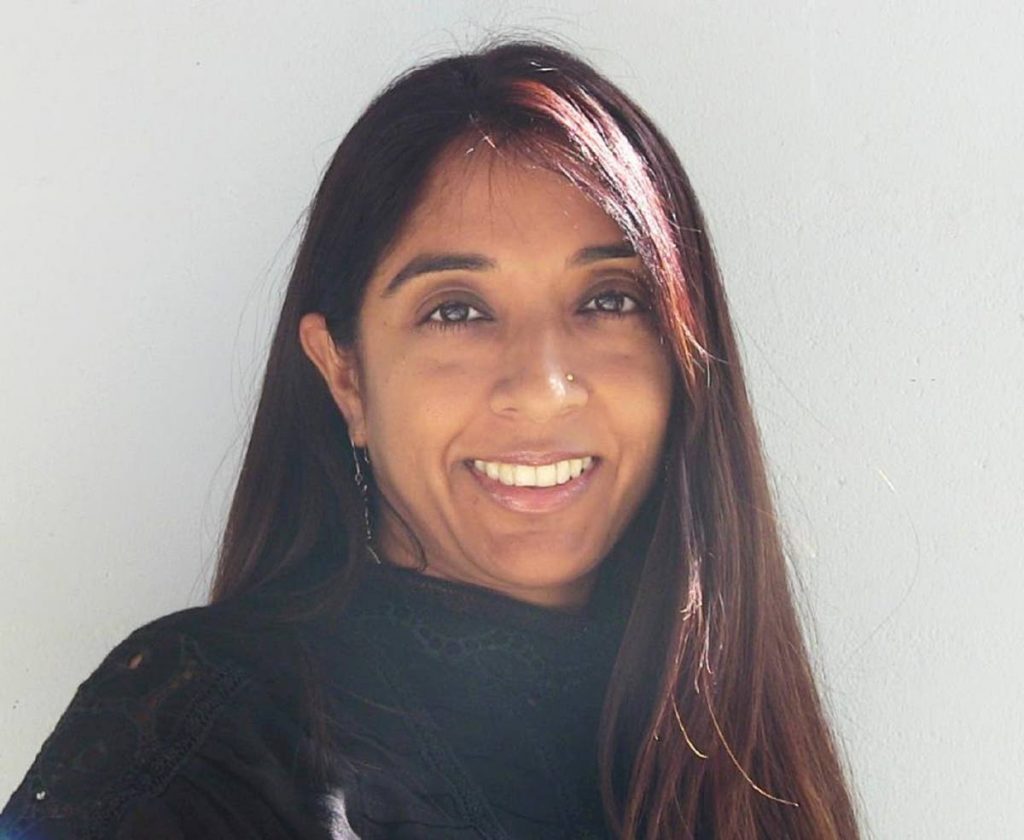Woman warrior Andaiye

Diary of a mothering worker
Entry 336
Motheringworker@gmail.com
DR GABRIELLE JAMELA HOSEIN
WHEN WARRIORS walk into the pages of history, it is up to those of us left behind to write the words that give life to their memory. So it is with Guyanese activist Andaiye, who passed away on May 31, aged 77.
Born Sandra Williams in 1942, she changed her name to a Swahili one, meaning “daughter comes home.” I always admired her singular name and have never met another Caribbean woman with one name, so chosen. No patriarchal or colonial lineage to negotiate, just what Dominican revolutionary Cecilia Babb would call her “woman name.”
Such boldfacedness seems to have come from a fiercer time than now, when Caribbean women, indeed Caribbean people, imagined ourselves on entirely liberated and self-defined terms.
Andaiye’s story won’t be told by the victors, but by those who stood at her shoulders, her comrades, her feminist sisters, another generation of upcoming social justice foot soldiers, and others from all walks of life whom she continues to call into battle, her spirit as unrelenting in its call for our commitment as she was in life.
She was a sharp woman, wry and acidic, yet wonderfully encouraging and compassionate. She could bless and warn at the same time, empower and humble, educate and listen. I met her many times and she was always full of quiet and unwavering truth, her gaze looking right through pretensions, power and politicking.
Forty years ago, Andaiye was a founding member of the Working People’s Alliance at a time when revolutionary politics was sweeping the region, from the Workers’ Party of Jamaica to the New Jewel Movement of Grenada to student protests of the 1970s that aimed to topple the “flag independence” and establishment politics of Dr Eric Williams in Trinidad.
She worked as co-ordinator and editor, international secretary and women’s secretary, until 2000. It’s like she herself was walking in the footsteps of the renowned radical, Trinidadian Claudia Jones, tireless thinker, writer, and fighter for working people, for justice for women, and for an end to the racist legacy of colonialism.
After the assassinations of Walter Rodney, Maurice Bishop, Jacqueline Creft and others in the 1980s, our Caribbean dream of a new world seemed impossible. In this dark time, women around the region began to organise anew. Andaiye co-founded Red Thread, a Guyanese women’s organisation committed to women’s economic independence and power, cross-race solidarity, working-class women’s leadership, and development built on care and justice.
Women like her created and held a space bigger than our current aspirations seem. At a moment when everyone, from the International Monetary Fund to the big banks, is talking about women’s economic empowerment, Andaiye insists that this demands actually changing power relations in households, the economy and culture, and between our local economies and the global economic order.
She would scoff at the cheapness of a definition that aims to get more women into the waged labour force while ignoring the care labour they still carry, and while failing to support cross-class women’s movements so that the poorest of women are organised to exercise a say over our economy.
When CLR James wrote Every Cook Can Govern, he wasn’t thinking of mothers, housewives and domestic workers, but Andaiye and the organisations she was a part of, the Women’s International Network for Wages for Caring Work, and the Global Women’s Strike, always did.
In Andaiye’s words, “I believe fundamentally that seeing how women’s unwaged labour underpins everything is the starting point of everything ranging from understanding capital to organising against it.”
Her passing reminds that we should cherish what a generation of women spent their lives and labour working toward, and steady ourselves for the unfinished business with which we are left.
For her, Venezuela and solidarity with its people are our business. The “whole doctrine of pre-emptive strike – with all the rogue states and failed states being countries with people of colour” is our business. Men and boys murdered by the thousands across the region are our business. “Women at the bottom – working class, of color” are our business. Counting women’s labour is our business. Turning to our common humanity as a basis for political action is our business.
“I always feel good when people are not taking it – are fighting back,” said Andaiye in 2004. When published, her collection of speeches and writings will be titled, The Point is to Change the World. When we live by those words, we keep her memory alive. And, perhaps, that is all that needs to be said.


Comments
"Woman warrior Andaiye"